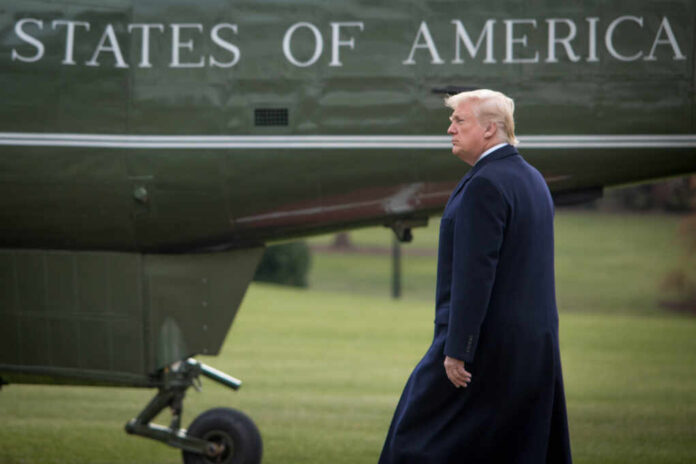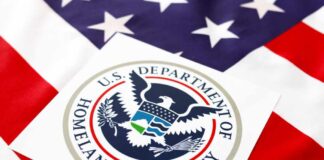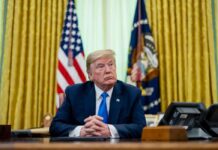
In a landmark case involving presidential politics, the Supreme Court delved into a critical constitutional debate on Thursday. The focus was on the case involving President Donald Trump’s eligibility for the Colorado presidential ballot. This case marks a pivotal moment in election law that could have far-reaching implications for how states interpret the federal Constitution’s 14th Amendment.
Attorney Jonathan Mitchell, representing Trump, argued against the 45th president’s disqualification from the Colorado ballot, asserting a state’s limitation in barring federal candidates. Mitchell emphasized that only Congress holds the authority to prevent an elected candidate from assuming federal office under the 14th Amendment’s insurrection clause. His argument hinges on the interpretation of Section 3 of the 14th Amendment, which bars individuals who have engaged in insurrection from holding office.
Today SCOTUS hears one of the most important cases they’ve ever decided: whether Dems can unilaterally kick Trump – or any candidate they hate – off the ballot & prevent voters from choosing their president. Of course they can’t. Any ruling other than 9-0 would be a disgrace
— Josh Hawley (@HawleyMO) February 8, 2024
Central to the discourse are the events of January 6, 2021, at the U.S. Capitol. Critics argue that Trump’s actions on that day qualify as “incitement of insurrection,” thus barring him from future office. Trump’s legal stance, however, refutes this categorization.
Intriguingly, Justice Clarence Thomas, often reserved in court proceedings, probed the nature of the 14th Amendment’s Section 3, questioning whether it is self-executing or if it necessitates congressional action. Mitchell maintained that it is not self-executing, underscoring Congress’s essential role in its execution.
I went to the Supreme Court this morning to show my support for President Trump.
The Left’s nearly decade-long witch hunt to take down Trump must end.
Let the American people decide our next president. pic.twitter.com/DLtF93Fhiw
— Sen. Marsha Blackburn (@MarshaBlackburn) February 8, 2024
A notable point in Mitchell’s argument is the definition of an “officer” as stated in the Constitution. He asserts that the term applies to appointed officials, not elected ones, thereby excluding the president from this definition. This interpretation is pivotal in arguing that Section 3 does not apply to Trump.
The Colorado Supreme Court previously ruled that Trump should be disqualified for his “attempts to overturn the 2020 election results,” culminating on January 6. Trump’s team, however, argues this ruling violates the Constitution’s electors clause and Colorado’s election code, asserting the state court overstepped its bounds.
As we prepare for today’s clash at SCOTUS on Colorado ruling to kick Trump off the ballot under Sec 3 of 14th Amendment—a reminder:
Neither Trump nor his associates nor any of the 1,260+ J6ers have been charged let alone convicted of insurrection. pic.twitter.com/myMlsLZ432
— Julie Kelly 🇺🇸 (@julie_kelly2) February 8, 2024
Legal experts believe the Supreme Court’s decision will be handed down soon and will likely be closely split. The ruling will affect Trump’s personal political future and set a significant precedent in the intersection of state authority and federal electoral eligibility.













